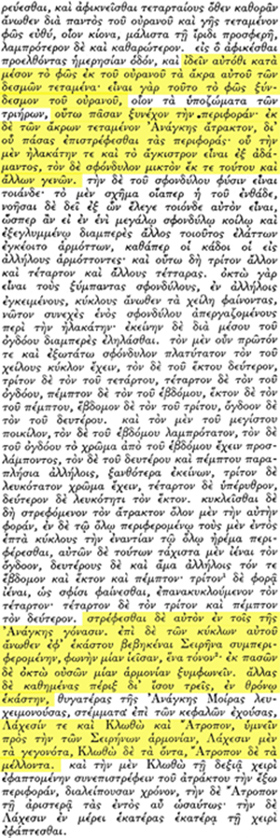
|
|
|---|
|
And
the spindle turned on the knees of Necessity, |
| 日本語 | |
|
In Plato’s The Republic the
world as a whole is described
as a kind of sounding machine |
|
The thought of the music of the spheres, which is seen in this text, seems to be almost identical to the teaching of the Pythagorean school. H. G. |
|
|---|---|
| Back to: |